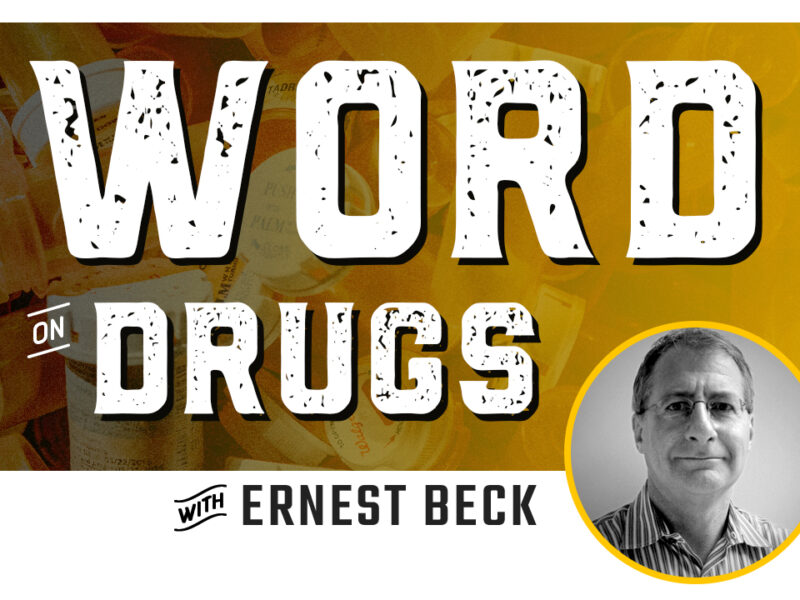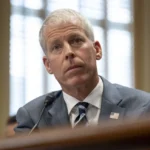The Word on Drugs: Experts Say Oregon’s Drug Decriminalization Plan Wouldn’t Work in Wyoming
Oregon hands out ‘citations’ for illicit drug use, but fails to provide a critical pathway to drug treatment
- Published In: Other News & Features
- Last Updated: Aug 24, 2023

By Ernest Beck
Special to the Wyoming Truth
Oregon embarked on a bold drug policy experiment in 2020 after voters overwhelmingly approved a measure to decriminalize personal possession of illicit hard drugs. The landmark measure addressed an escalating addiction and overdose crisis by abandoning the failed, decades-old incarceration model and replacing it with a more humane, public health-centered strategy. Those struggling with substance use disorder would not be arrested, but instead have easier access to a range of health and social services including drug treatment.
But more than two and a half years into the program, data shows that Oregon’s closely watched program is faltering—a cautionary tale to other states, including Wyoming, that are also grappling with a surge in overdose fatalities.
Under Oregon’s decriminalization program, anyone caught with a small amount of drugs such as heroin, methamphetamines or cocaine would receive a $100 citation similar to a parking ticket. The fee would be waived if they called a hotline and participated in a health screening, during which they also would be informed about treatment options, harm reduction services such as clean needles, and housing assistance. Concurrently, the state committed up to $300 million from marijuana tax revenues to expand access to drug treatment.
What happened? Arrest rates plummeted, but overdose fatalities soared to the highest level ever—about three per day, according to the Oregon Health Authority. Most of the 4,000 drug-use citations were ignored, and fewer than 200 people called the hotline seeking an assessment. Among the hundreds of thousands of substance users in Oregon—a state with the second-highest rate of adult drug use in the nation—few entered treatment through the decriminalization program. Meanwhile, downtown Portland became rife with open-air drug use and dealing, along with rising crime and homelessness.
“It’s a massive failure,” concluded Rodney A. Wambeam, a senior research scientist at the Wyoming Survey & Analysis Center at the University of Wyoming. Wambeam, who has studied drug policy in dozens of states, including Oregon, said that while the strategy was a good starting point for reform, it lacked follow through that would facilitate treatment, which is entirely voluntary.
“It’s not that arresting people is wrong, it’s more about what happens afterward, because we know that rehab and peer-led recovery works,” he told me. “If you want to help illicit drug users, you have to embrace them and help get them to treatment, not give them a citation with an option to pay.”
There were mitigating factors that complicated the rollout of the Oregon program. Expanding access to treatment didn’t get off the ground fast enough, leading to months-long waiting lists. Then came fentanyl, the powerful and often-lethal synthetic opioid that is now ubiquitous nationwide and driving overdose fatalities in the U.S. to a record 108,000 annually.
At the same time, addicts increasingly engaged in polysubstance use—for example, combining fentanyl and meth to feed their habit, often with deadly consequences. As Wambeam explained, “One is an upper, the other a downer, but escape is the point—an addict uses whatever means they can to escape their existence.”
This observation underscores the true nature of addiction, regardless of the drug of choice. It’s not a moral failing, but a chronic medical condition. Experts often say that drugs “hijack the brain.” And as demand grows for more powerful substances to get high, life can easily unravel, with families and communities forced to step in, often without adequate resources.
The road back to a life without drugs can be bumpy. Most users resist getting help, and even if they find it—only about one in five adults receives treatment in the U.S. Relapses are frequent. Treatment is still the most effective way to attain sobriety, which is why critics say the Oregon program, with pointless citations and lack of mandatory treatment, isn’t working.
The debate in Oregon reflects a wider policy debate across America. All too often, anti-addiction policies are presented as a stark choice between treatment with reliable healthcare professionals and harm reduction measures such as safe syringe sites, overdose prevention centers and the wider availability of overdose reversal medications like naloxone.
This is unfortunate. In my opinion, each method should be considered an equal part of a comprehensive approach to not only save lives, but also change them.
The criminal justice system can play a role in this process. For example, after an arrest, drug courts could allow a person a choice of committing to rehab over serving a jail sentence. As Tony Morse, the policy and advocacy director for Oregon Recovers, told the Atlantic, “If you take away the criminal justice system as a pathway that gets people into treatment, you need to think about what is going to replace it.”
As overdose fatalities rise in Portland, along with public disorder and frustration in neglected rural areas of Oregon, popular opinion is shifting against decriminalization. A recent poll found that over 63% of Oregonians now want to bring back criminal penalties for drug possession, and politicians who once backed the measure are proposing modifications to the program.
Whether Oregon will ultimately roll back its pioneering drug policy reform remains uncertain. Expanding access to treatment as originally planned would go a long way toward making the strategy more effective, and the influx of funds from opioid litigation settlement could boost this effort.
Meanwhile, should Wyoming consider adopting Oregon’s model?
Wambeam said it is not totally unreasonable to assume that the issue might come up for discussion and find supporters. After all, attitudes appear to be softening in Wyoming concerning the legalization of medical cannabis, he pointed out.
But he does not think that decriminalizing drugs is the right way to go in Wyoming. While considerable resources are being deployed to provide treatment services across the state, access can be difficult because of the long distances involved to reach a facility and a culture that stigmatizes addiction.
“Our results would be even worse than Oregon’s,” he told me. “Handing out tickets by itself won’t decrease addiction and overdose.”
Ernest Beck writes about drug policy. He is the former communications lead for the Rosenthal Center for Addiction Studies in New York.













